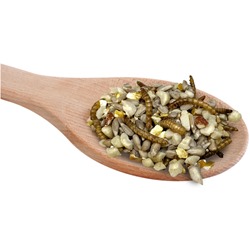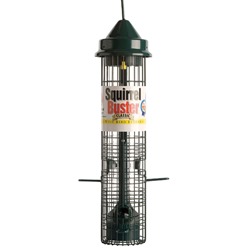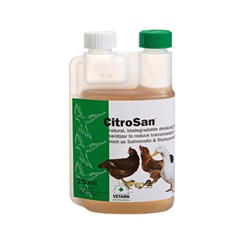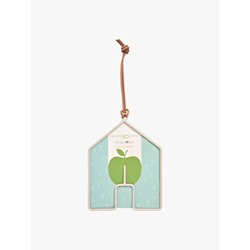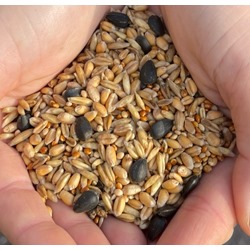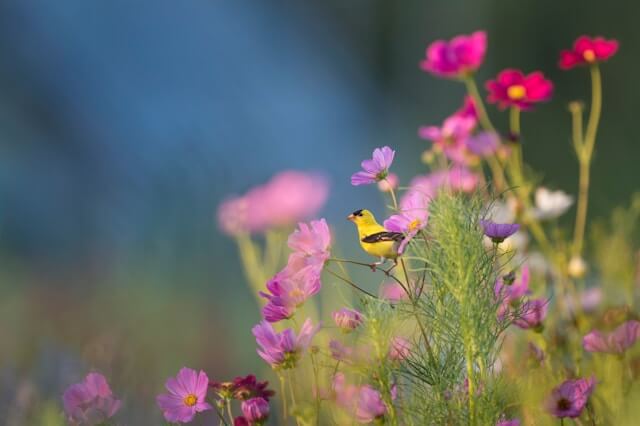
Spring marks the beginning of nesting season, so wild birds will benefit from high energy food sources during this time. In fact, as the UK tends to stay cold right through into the middle of spring, it is recommended to continue with high-energy winter feeding techniques until around mid-March at least. If you're unsure how best to care for our feathered friends, here's what to feed birds in spring.
When is bird nesting season?
The official bird nesting season begins on March 1st and ends on July 31st. You may have noticed that farmers have finished hedge cutting, as it is illegal to disturb nests beyond 1st March, and you may also have seen squabbling birds fighting for territory. They may start to gather nesting materials in a likely spot, but these might not become occupied as it's usually just for practice, or to show off to a prospective mate.
What is the best food for spring birds?
Once things really start heating up as we get further into spring, it's time to change your feeding routine. Here are some tips for feeding birds in spring:
- Peanuts - These should only ever be fed from a mesh peanut feeder so that small chunks are taken back to the nest, reducing the choking risk. Seed mixes containing peanut granules are a good option.
- Fruit - Raisins, sultanas, soft apples, pears cut in half, bananas and grapes are delicious options that birds love.
- Mealworms - Live foods such as live mealworms and waxworms are a good choice, to supplement the birds' natural diet. 'Buggy' treats are also good to provide in case of natural insect shortages, such as during a cold or wet spells and dry spells where earthworms cannot be picked out of the hard ground.
- Natural food sources - Try to support birds' natural prey to make hunting for food easier. For example, plants are great at supporting caterpillars so you could grow the plant instead of providing the food itself, and let nature run its course. To get started, we suggest growing holly, ivy or nettles.
What to avoid when feeding birds in spring
- Fat balls - These can easily go soft and rancid in the heat so should be avoided. Commercially made fat products are suitable for use in the warmer months, but may not be as popular and so any uneaten product should be discarded after three weeks. Our High Energy Fledgling mix contains MINI suet pellets, which are a good option. They also reduce the choking risk for chicks while providing them with the sustenance they need.
- Over feeding - If a lot of food is being left in feeders then make sure you're removing it and reducing the food you put out. It's always best to minimise the amount of food left in and around feeders so as not to attract predators, vermin and disease.
Purchase bird feed from Really Wild Bird Food
Here at Really Wild Bird Food, we pride ourselves in providing the highest quality, organic bird feed to avid birders across the UK. When feeding wild birds, it's essential that the seeds you offer them are not only delicious but highly nutritious too. This is what will keep them coming back to visit your garden all year round.
We supply a huge range of seeds, fat balls and other tasty treats for birds. Simply have a browse of our site or for beginner birders, we recommend checking out our seed mixes page.
Shop Bird Food Contact Us
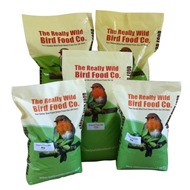
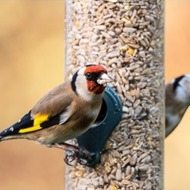 Back
Back Bird Feeders
Bird Feeders  Seed Feeders
Seed Feeders Peanut Feeders
Peanut Feeders Peanut Butter Feeders
Peanut Butter Feeders Suet & Fat Feeders
Suet & Fat Feeders Window Feeders
Window Feeders Hanging Feeders
Hanging Feeders Feeding Stations
Feeding Stations Ground Feeders
Ground Feeders Easy Clean Feeders
Easy Clean Feeders Bird Tables
Bird Tables Seed Trays
Seed Trays Bird Baths & Drinkers
Bird Baths & Drinkers Feeder Accessories
Feeder Accessories Feeder Hygiene
Feeder Hygiene Squirrel Proof Bird Feeders
Squirrel Proof Bird Feeders For the Kids
For the Kids Niger Seed Feeders
Niger Seed Feeders Mealworm Feeders
Mealworm Feeders Bird Food Storage
Bird Food Storage Fat Ball Feeders
Fat Ball Feeders Tube Feeders
Tube Feeders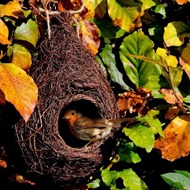

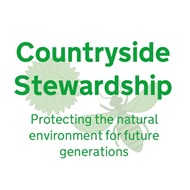

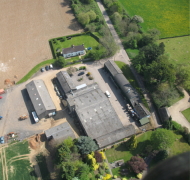 Our Farm
Our Farm Contact Us















